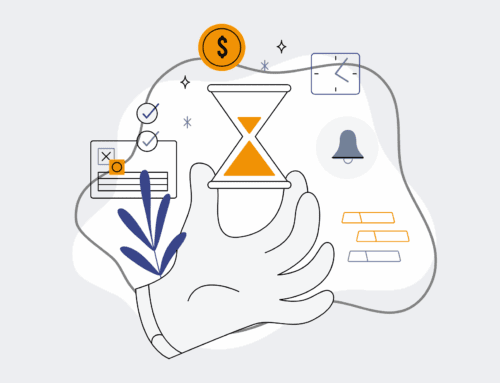The Latest Innovations in AI-Powered Resume Analysis Technologies
The landscape of talent acquisition is in constant flux, driven by technological advancements that promise to refine, accelerate, and de-bias the hiring process. At the forefront of this evolution are AI-powered resume analysis technologies, which have moved far beyond simple keyword matching to offer sophisticated insights. For HR leaders, recruitment directors, and COOs at high-growth B2B companies, understanding these innovations isn’t just about staying competitive; it’s about strategically leveraging tools to save critical time, reduce human error, and position your organization for scalable growth.
At 4Spot Consulting, our mission is to eliminate bottlenecks and automate critical business systems. We see AI-driven resume analysis as a prime example of how intelligent automation can transform a traditionally labor-intensive function into a streamlined, insights-rich process. It’s not about replacing human judgment but augmenting it, allowing your high-value employees to focus on what they do best: building relationships and making strategic hiring decisions.
Beyond Keywords: The Evolution of Semantic Understanding
Early resume parsing tools were rudimentary, often relying on keyword density to rank candidates. This frequently led to overlooked talent and a proliferation of “resume stuffing” tactics. Today, the game has changed dramatically. The latest AI innovations employ natural language processing (NLP) and machine learning (ML) to achieve a far deeper semantic understanding of a candidate’s profile. These systems can now comprehend context, identify transferable skills, and infer capabilities that aren’t explicitly stated.
For instance, an AI can analyze project descriptions to discern problem-solving methodologies, leadership contributions, and cross-functional collaboration, even if those exact terms aren’t present. This moves the focus from superficial matching to a more holistic assessment of a candidate’s true potential and fit, aligning them not just with a job description but with the organizational culture and strategic objectives.
Advanced Skill Extraction and Qualification Mapping
One of the most impactful advancements is the AI’s ability to extract and standardize skills, even when presented in varying terminology. A candidate might list “managed client accounts,” while another says “oversaw customer relationships.” Modern AI systems can map these diverse phrases to a common skill taxonomy, creating a more consistent and comparable dataset. This is crucial for large organizations dealing with thousands of applications annually, helping to build a comprehensive, searchable database of talent.
Furthermore, these systems can now map qualifications against specific job requirements with greater precision. They can identify gaps, highlight strengths, and even predict success based on historical data within your organization. This predictive capability is a game-changer, moving recruitment from a reactive to a proactive function, anticipating needs before they become critical.
Combating Bias and Enhancing Diversity
Bias, whether conscious or unconscious, has long been a significant challenge in hiring. Traditional resume reviews can inadvertently perpetuate biases related to gender, age, ethnicity, or even the prestige of educational institutions. AI-powered resume analysis offers a powerful countermeasure.
By focusing on objective criteria – skills, experience, and accomplishments – and being designed to anonymize demographic data, AI tools can help create a more level playing field. They can be trained to filter out potentially discriminatory identifiers, presenting recruiters with a more merit-based assessment. This doesn’t eliminate bias entirely, but it significantly reduces its prevalence in the initial screening stages, fostering more diverse and inclusive candidate pools. At 4Spot Consulting, we believe that truly effective automation should not only drive efficiency but also uphold ethical principles, and bias reduction in hiring is a paramount example.
Integration with Automation Workflows: The OpsMesh Advantage
The true power of these AI innovations is unlocked when they are seamlessly integrated into an overarching automation strategy. Imagine a workflow where a resume is submitted, automatically parsed by AI, categorized, scored, and then routed to the appropriate recruiter or hiring manager – all without a single manual touch. This is the essence of our OpsMesh framework.
We work with clients to connect best-in-class AI resume analysis tools with their existing ATS (Applicant Tracking System), CRM (like Keap), and communication platforms using robust integration tools like Make.com. This not only speeds up the initial screening process but also ensures data integrity, eliminates manual data entry errors, and provides a ‘single source of truth’ for all candidate information. This holistic approach saves hundreds of hours, reduces operational costs, and allows recruitment teams to operate at peak efficiency.
For an HR tech client, we implemented a system that saved over 150 hours per month by automating their resume intake and parsing process, enriching candidate profiles with AI, and syncing seamlessly to their Keap CRM. This isn’t just about saving time; it’s about redeploying high-value employees to strategic initiatives, ultimately driving revenue and scalability.
The Future is Now: Implementing Smart Solutions
The latest innovations in AI-powered resume analysis are not future concepts; they are available and transformative tools for businesses ready to embrace them. They represent a significant leap forward in making the hiring process smarter, fairer, and more efficient. For business leaders looking to eliminate human error, reduce operational costs, and increase scalability, integrating these technologies is no longer an option but a strategic imperative.
At 4Spot Consulting, we help organizations navigate this complex landscape. Our OpsMap™ diagnostic identifies precisely where AI and automation can deliver the most impact in your talent acquisition processes, building a roadmap for profitable implementation. It’s about strategic action, not just technology for technology’s sake.
If you would like to read more, we recommend this article: The Future of AI in Business: A Comprehensive Guide to Strategic Implementation and Ethical Governance






